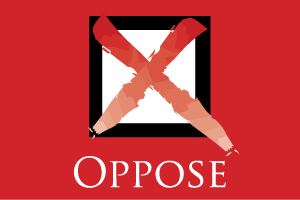The California Chamber of Commerce and a coalition of employer groups are asking the Governor to veto legislation creating a presumption that a heat-related illness or injury is caused by work regardless of any causal link between the workers’ compensation claim and the employer’s conduct.
The presumption created by SB 1299 (Cortese; D-San Jose) would apply regardless of whether a citation was issued.
No Evidence of Need
The Legislature and administration have recognized many times that presumptions should be established sparingly and only where data demonstrates a need. Presumptions are enacted so rarely because they essentially force an employer to cover an injury regardless of whether it falls under the purview of workers’ compensation.
Throughout consideration of SB 1299 by legislators, the CalChamber and coalition have emphasized there is no data supporting the need for the proposed workers’ compensation presumption. In fact, a recent study by the California Workers’ Compensation Institute (CWCI) showed that agricultural claims are accepted at a rate of 89% — higher than other industries, including other outdoor industries.
Moreover, the CWCI study shows that only 0.65% of all agriculture claims involved heat-related injuries or illnesses, a low number that is consistent with other outdoor occupations.
SB 1299 does not include mechanics as far as how establishing applicability of the presumption would work. If the bill contemplates the determination being made by the Workers’ Compensation Appeals Board (WCAB), employers have strong concerns about assigning that responsibility to an entity that specializes in workers’ compensation claims, not workplace safety.
Increases State Costs
The bill appears to task WCAB judges with the responsibility of determining whether an employer has violated a heat illness prevention standard. A violation of any one of 73 applicable heat illness prevention requirements could trigger the workers’ compensation presumption, regardless of any causal link between the alleged violation and injury.
Determining whether there has been a violation will be extremely time intensive for WCAB judges and staff. Cal/OSHA inspectors (who are experts in this field) generally spend hours performing inspections and must review medical reports, conduct interviews, review site data and reporting, and more.
While preliminary audits show few claims related to heat are filed, under SB 1299, each claim filed will be increasingly more time- and labor-intensive, given the volume of the medical documentation and Qualified Medical Examiner (QME) reports, as well as the heat illness standards inspection reports. The complexity of each allegation will likely require multiple hearings to determine the validity of the claims, especially considering that this is not WCAB’s expertise. The added time and resources will impose costs on the department.
In addition, each of the 286 WCAB judges would need training on heat illness prevention standards and compliance. They would likely need to be trained by Cal/OSHA itself, imposing an independent and additional cost on that department.
The CalChamber and coalition have noted it is unclear whether the fund proposed to be created by SB 1299 would help with any of the administrative costs incurred by the state. Further, that fund is coming from the Workers’ Compensation Administration Revolving Fund, which is funded through workers’ compensation assessments paid by all employers, including public entities. Generally, other industry-specific funds are funded by that industry alone.
Ashley Hoffman, Senior Policy Advocate, CalChamber
CalChamber members can read more about Workers’ Compensation Covered Injuries in the HR Library. Not a member? See how CalChamber can help you.
